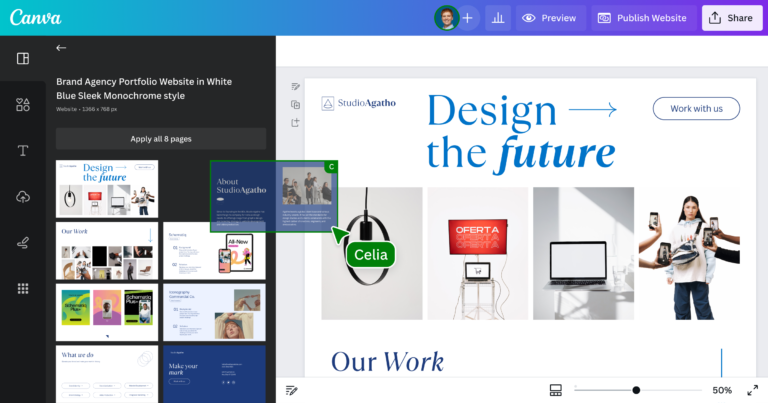In today’s digital marketing landscape, Pay-Per-Click (PPC) advertising has become a valuable tool for businesses aiming to drive traffic, generate leads, and increase sales. Regardless of whether you run a small business or manage a large corporation, PPC offers a way to reach your target audience with precision, ensuring that every advertising dollar is spent on individuals who are most likely to engage. Unlike traditional advertising models, PPC gives businesses the unique advantage of only paying when a potential customer clicks on their ad, allowing for better control over budget and direct measurement of ad performance.
This article will provide insights into common questions about PPC, including what PPC is, how it functions within a business setting, and what benefits it offers. By the end, you’ll understand how PPC can enhance your marketing strategy and help you achieve your business objectives in a competitive digital world.
What is PPC?

PPC stands for Pay-Per-Click, a form of online advertising where advertisers are charged a fee each time a user clicks on their ad. Essentially, PPC allows businesses to “buy” visits to their website rather than relying solely on organic traffic generated through search engine optimization (SEO) efforts. In this model, advertisers bid on specific keywords or phrases relevant to their target audience. When users search for these terms, the ads appear prominently in the search engine results, often at the top of the page.
For example, if you run a PPC campaign for a coffee shop and bid on the keyword “best coffee in town,” your ad could appear whenever someone searches for that term. The primary benefit of PPC is that you only pay when a potential customer actually clicks on the ad, which makes it a highly performance-oriented advertising model. This structure enables businesses to control their advertising budget effectively while reaching potential customers who are actively searching for related products or services.
Understanding PPC in a Business Context
Within a company, PPC can be a powerful tool for achieving specific marketing goals, whether it’s boosting brand awareness, generating leads, or increasing sales. When people ask what PPC is in a business context, it refers to a strategy that allows companies to place their ads in front of users who are actively seeking products or services similar to what the business offers. PPC advertising offers a way to target specific demographics, keywords, and locations, giving businesses control over who sees their ads and when.
Many companies appoint a PPC manager or admin to oversee these campaigns. This role involves analyzing data, managing budgets, and optimizing ad performance to ensure that the company achieves a positive return on investment (ROI). An experienced PPC admin is vital to maximizing the effectiveness of the campaigns, as they will adjust the keywords, bids, and ad copy based on performance data. In many cases, companies see fast results from PPC campaigns, making it a suitable choice for brands that need immediate exposure or those launching a new product.
Key Components of a PPC Campaign

Creating a successful PPC campaign requires more than just bidding on a few keywords. It involves a strategic approach that considers multiple elements to ensure that the campaign reaches its target audience effectively and encourages them to take action.
One of the most critical aspects is selecting the right keywords. Choosing keywords with high search volume and low competition can significantly improve the reach of the ad while keeping costs manageable. Another essential component is crafting engaging ad copy that resonates with users and entices them to click through. An effective PPC ad needs to capture the user’s attention and clearly communicate the value proposition.
The user experience does not end when someone clicks on the ad; it continues on the landing page where they are directed. A well-optimized landing page that aligns with the ad’s message and encourages further engagement or conversion is key to maximizing the return on investment. Lastly, budget management is crucial. PPC campaigns can quickly become costly if not properly monitored, so setting daily or monthly spending limits and analyzing cost-per-click (CPC) data regularly helps keep the campaign financially sustainable.
Benefits of PPC Advertising
When implemented effectively, PPC advertising provides numerous advantages for businesses of all sizes. One of the most significant benefits is the ability to reach a targeted audience. With PPC, you can define parameters such as location, age, interests, and even the time of day when ads will appear. This precise targeting ensures that your ads are seen by the right people at the right time, maximizing the chances of attracting interested users.
Cost control is another advantage. Since you only pay when someone clicks on your ad, you have greater control over how much you spend on each campaign. Unlike traditional advertising, where you might pay a fixed amount regardless of the outcome, PPC allows you to adjust your budget based on performance, focusing on high-performing ads and reallocating funds as needed.
PPC also delivers quick results. While SEO takes time to build and show results, PPC can drive traffic to your site almost immediately after launching the campaign. This is particularly beneficial for businesses that need fast visibility, such as startups or new product launches. Additionally, PPC provides measurable performance data, allowing you to track metrics like click-through rate (CTR), conversion rate, and cost per conversion. This data is invaluable for making informed decisions and optimizing future campaigns.
PPC and SEO: Complementary Strategies

PPC and SEO often work together in digital marketing strategies, complementing each other to maximize a business’s online presence. While SEO focuses on improving a website’s organic ranking over time, PPC offers instant visibility. Combining both strategies creates a robust digital marketing approach that can yield both short-term and long-term results.
For instance, while waiting for SEO efforts to boost organic search rankings, PPC can drive immediate traffic to your site. Moreover, PPC campaigns can provide valuable keyword data that informs SEO strategies. By analyzing which keywords generate the highest click-through and conversion rates in PPC campaigns, businesses can identify high-performing keywords to target in their SEO efforts. This integration can create a more comprehensive and balanced marketing approach that maximizes both paid and organic reach.
Types of PPC Ads
PPC advertising comes in various formats, each designed to engage users in different ways. Search ads appear on search engine results pages and are triggered by specific keywords. Display ads, on the other hand, are shown on websites that are part of the ad network, reaching users who may not be actively searching for your product but fit your target demographic. Shopping ads, popular among e-commerce businesses, display product images and prices directly in search results, making it easy for users to make a purchase decision. Video ads, often used on platforms like YouTube, offer a more visual and engaging way to connect with users and can be highly effective in building brand awareness.
Selecting the right ad type depends on your business goals and target audience. Each format offers unique benefits that can be leveraged to enhance a PPC campaign’s effectiveness and achieve the desired results.
Conclusion
PPC advertising is an essential tool in today’s digital marketing landscape, offering businesses a way to reach potential customers quickly and efficiently. By understanding what PPC is and how it functions in a company setting, businesses can harness its full potential to increase visibility, generate leads, and drive sales.
For businesses new to PPC, starting with a well-thought-out strategy and potentially hiring a PPC manager to oversee the campaign can significantly improve results. By combining PPC with SEO and carefully selecting the appropriate ad types, companies can develop a balanced digital marketing strategy that provides both immediate and sustained benefits. Whether you’re a small business looking to grow or a large corporation aiming to maintain your competitive edge, PPC can be a valuable addition to your marketing toolkit.







